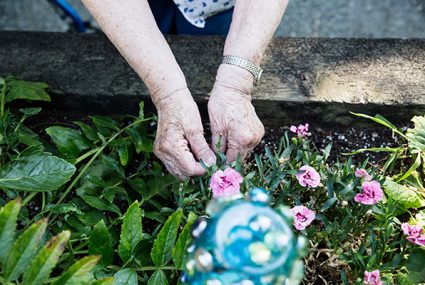According to the Canadian Diabetes Association, “type 2 diabetes is a disease in which your pancreas does not produce enough insulin, or your body does not properly use the insulin it makes. As a result, glucose builds up in your blood instead of being used for energy.” Type 2 diabetes is commonly found in the later stages of life (in seniors) and largely caused by lifestyle decisions and choices like smoking, low-fiber, high-fat and sugary diet, and sometimes genetic influence.
It is more common than you think. Institute for Quality and Efficiency in Health Carefinds that about 90 % of people who have diabetes have type 2 diabetes. Read Part 1 to learn how to detect diabetes in aging seniors.
Here’s how you can minimize the risks:
Apply creams to keep your skin in its best condition.
Test. Use blood glucose testing meters, strips, lancets and log books regularly.
Get diabetes management assessments.
Track your glucose levels. Very high glucose levels or very low glucose levels (called hypoglycemia) can be risky to your health. Talk to your doctor about how to check your glucose levels at home. At least twice a year, get a blood test called the A1C test. The result will show your average glucose level for the past 2 to 3 months.
Have yearly eye exams. Finding and treating eye problems early may keep eyes healthy.
Check your kidneys yearly. Diabetes can affect your kidneys. A urine and blood test will show if your kidneys are okay.
Get flu shots every year and the pneumonia vaccine. A yearly flu shot will help keep you healthy.
Check your cholesterol. At least once a year, get a blood test to check your cholesterol and triglyceride levels. High levels may increase your risk for heart problems.
Care for your teeth and gums. Your teeth and gums need to be checked twice a year by a dentist to avoid serious problems.
And one of the single biggest things you can do is to get regular exercise. Hit the gym in your community, stretch, or use hand weights in your living room. Get outside and walk, garden or join a class. It doesn’t matter really. Just get moving! Be sure you hydrate well and keep your glucose levels closely monitored.
The Canadian Diabetes Association has plenty of resources for managing the disease, tips and education, places to go for support, as well as the latest research.
Author Debbie Santos, RPh is the National Director of Clinical Pharmacy Services for Remedy’sRx Specialty Pharmacy. Remedy’sRx Specialty Pharmacy provides specialized services to seniors in residential settings.

Comments